India’s Panipuri Sellers Are Invisible Victims of COVID-19. Can We Help?
“When people have to choose between dying of disease or starvation, they choose the former. There is no other option for us, even if it means exposing ourselves.”
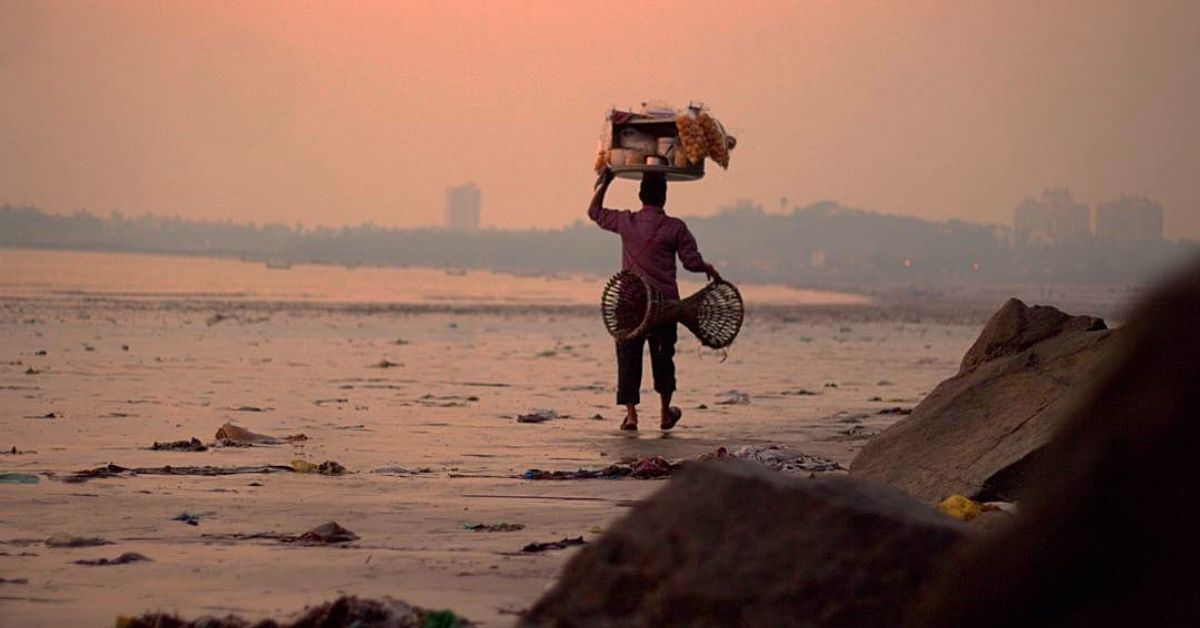
For many of us, living away from our parents, home is a concoction of bittersweet emotions. It’s rewarding and exciting but also, frightening and lonesome. I know because this is my lived reality, and it’s the price I have paid for the dream job in Bengaluru.
But, I have also had help to survive the recurring bouts of homesickness.
Almost every night after returning from a long day of work, I would stop at a roadside food stall, where an ever-smiling man would make panipuris, or customized delicious balls of wonder.
Unlike most in the area, he was the only one who would call it by a familiar name — phuchka! A single bite of the crispy wheat flour dumpling stuffed with spiced mashed potatoes and an extra drizzle of lemon juice, and I would be back home.
Be it the first taste of street food with my mother, the first time I spent my pocket money, the first date or the first class bunk in college, a humble phuchka-wala has always been the constant companion. So, even far away from home, Bengaluru-based Amit Kumar, aka Amit Da’s phuchka, would bring back the tangy, sweet and spicy reveries in just a mouthful.
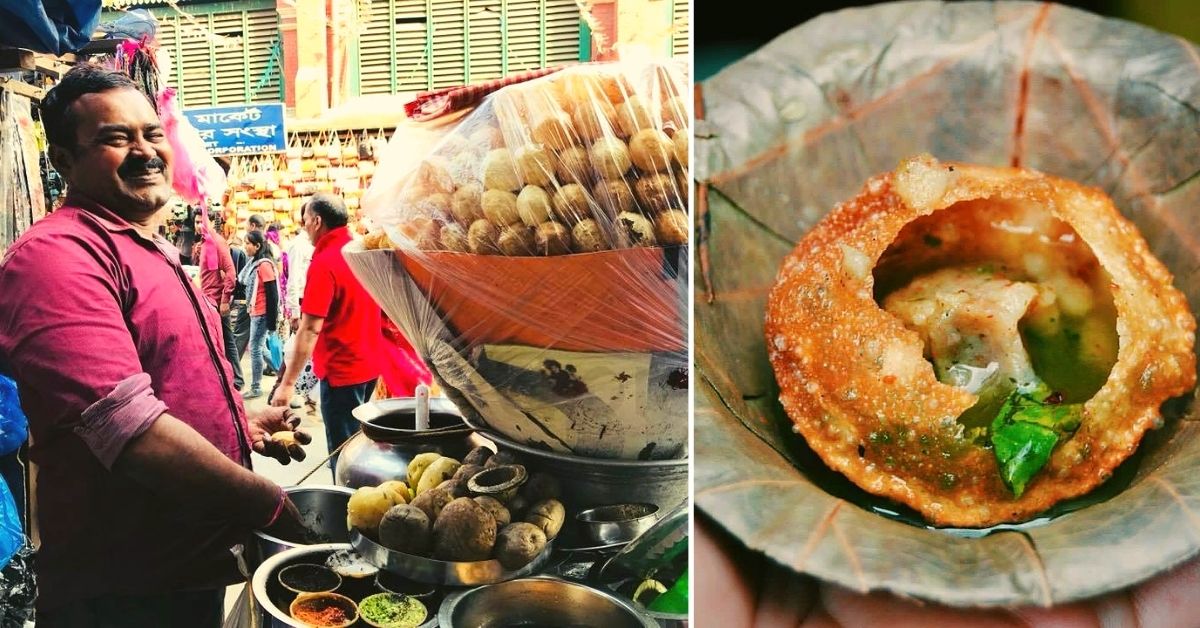
However, a lot has changed in the past few months. The corner stands empty, much like the rest of the city, as faced with the pandemic many of us either had to retreat indoors or leave for home.
Amit had been selling phuchkas, or panipuri, for the past two years. A native of Prayagraj, Uttar Pradesh, he, along with his elder brother, Kailash, left home for Bengaluru in pursuit of better opportunities. Many from their village had hit big metropolitan cities to set up their own food business, and they wanted the same.
“It’s not easy to leave your family behind but we had to for the sake of survival. We would live in a rented place and after paying the rent and covering other production expenses, we would send the remaining money back home,” says Amit, who along with his brother supported a family of five.
The duo earn an average of Rs 200 to Rs 500 daily, and pay a monthly rent of Rs 5000.
“My brother has three kids and this business also supports two elderly parents. Whatever we earned was never enough, but at least it was something. Now, we have gone down to zero and have exhausted our savings as well,” adds Amit. He and his brother left the city in June to move back home, as the lockdown culminated into the shutdown of all business, especially those conducted in temporary installments like thelas.
Amit’s condition is replicated all across the country, with many street food vendors grappling with the changing dynamics of social existence. Amid the COVID-19 situation, while most businesses withdrew and adapted to work from home operations, numerous small-businesses like these suffered a brutal shutdown, pushing many to the brink of poverty.
Panipuri Sellers and Their Struggle For Survival
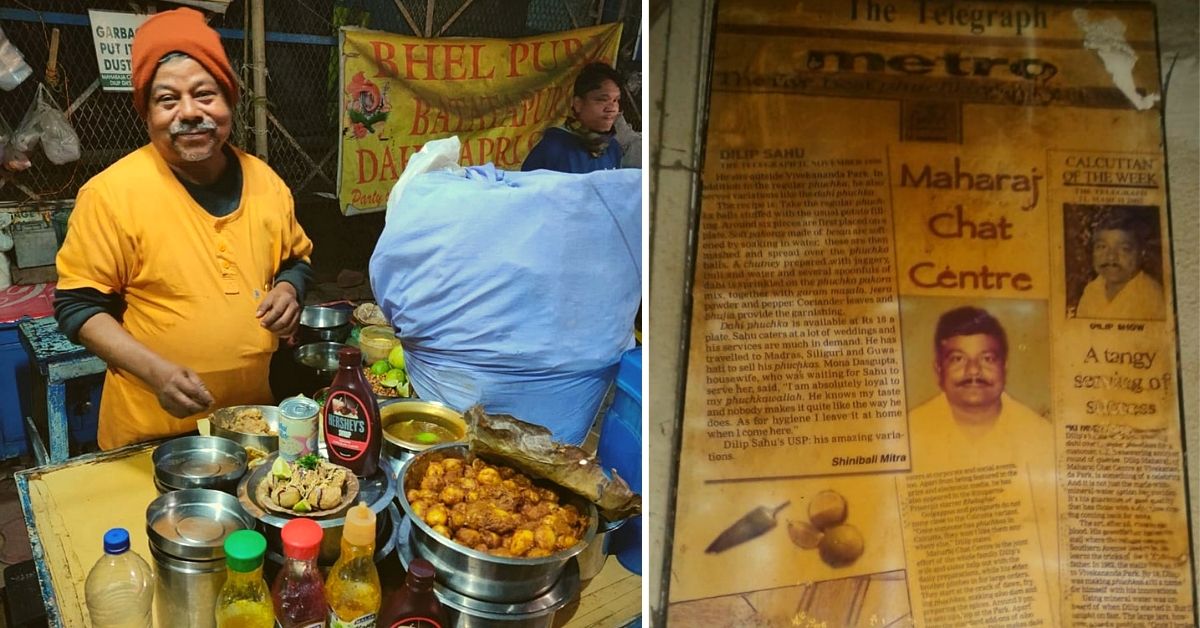
Kolkata’s famed Dilip Sahu from Maharaja Chat Centre, at the juncture of Vivekanand Park, is yet another casualty. Known as Dilip Da, this phuchka-wala is extremely popular across the city with media organisations reviewing and covering his work multiple times. Over the years his stall had become a common gathering spot for students and young professionals.
And yet, all the fame could not protect him from the ravages of the pandemic.
“In our line of business, ups and downs are common but in the last 40 years of my work I have never encountered this level of helplessness. The last time that my business took a hit was during demonetisation, but it eventually picked up. Now, it’s completely absent. There is zero money coming in, and my savings are also at the edge of exhaustion,” adds the 55-year-old, who is a diabetic and supports a family of four, including his wife who is recovering from cancer.
Prior to COVID-19, his daily earning would be an average of Rs 500 to Rs 2000, most of which would be spent on his business, living cost and medicines for his wife and himself. He shares that every month he spends almost Rs 5,000 on medicines alone and with no income for the past 4 months, the family has been in a tight crunch.
“I have a son who used to work with me at the stall but luckily he also is a skilled driver. But, due to the lockdown both these options were closed, although with future relaxations, we are hoping his driving gigs can help us sustain. The government ration has also stopped now. Last month we received some 15 kg of rice and 10 kg of wheat but including me, there are 5 mouths to feed and in no time this will be over. I don’t know what to do after that,” says Dilip, with a shaky voice, over the phone.
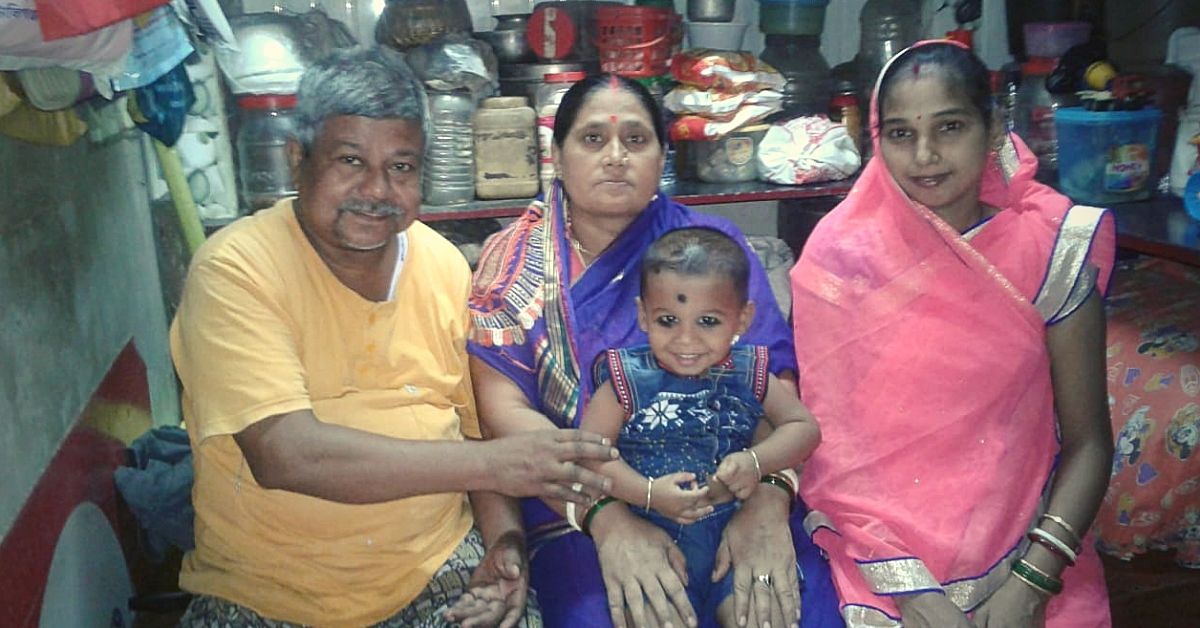
Starvation vs Contagion
A recent World Bank blog, estimated the global impact of COVID-19 on global poverty and suggested that more than 49 million people across the world will be pushed to extreme poverty in 2020. Its June 2020 India Development Update (IDU) draft, warned the government of an impending reality, whereby several households are likely to slip back into poverty due to the income and job losses owing to the pandemic.
Raj Singh, a resident of Bhind, Madhya Pradesh, fears he might be one of the countless casualties of COVID-19, not because of its direct implications on health but its economic consequences.
“I moved to Delhi in 2004 with my entire family of 15 people, and set up a golgappa stall near Shastri park with my brothers. Back home we had nothing, no land for farming or any other opportunity to earn a livelihood. We put everything at stake when we moved here,” shares Raj, who rented a place for Rs 8,000 in the city and was managing to save each penny to secure the lives of his children.
Unfortunately at the break of the pandemic, life as he knew it changed forever. Fearing homelessness, along with his entire family he participated in the exodus, by traveling almost 400 kilometers back home, on foot.
“It took us almost 3 days of walking night and day to reach home. The kids cried and our elder parents suffered. But, what could we do? Till April, we managed to earn nothing and couldn’t even pay the rent. We would’ve anyway been thrown out into the streets,” he says.
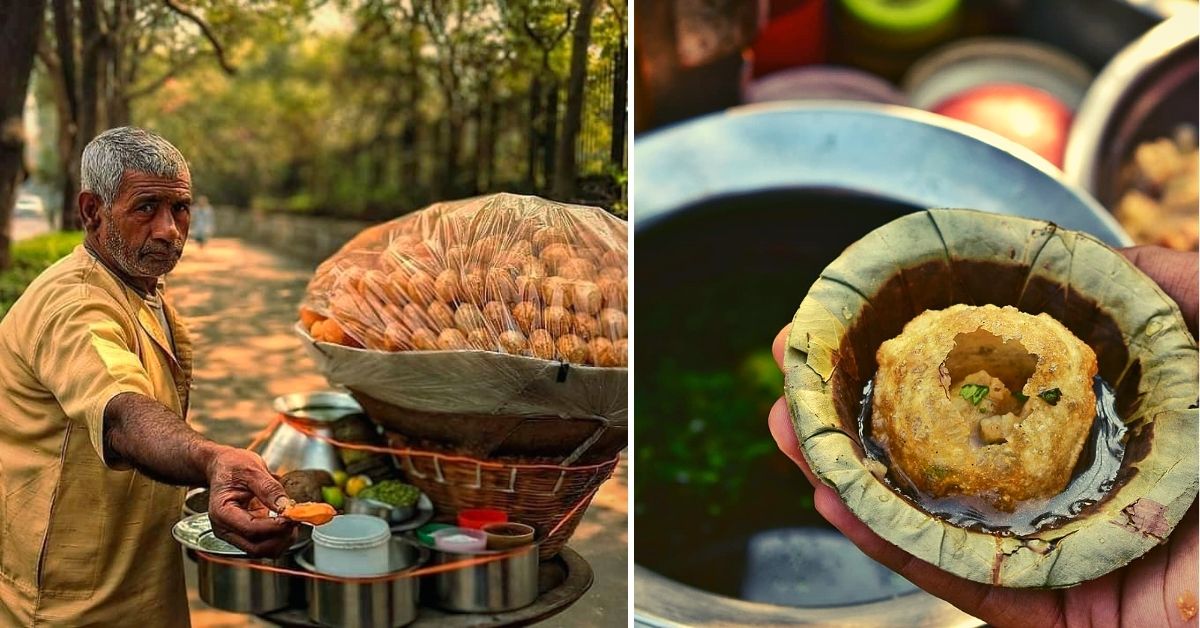
Back in Bhind, the only possession he had was a home. In the last few months, he has managed to get help from relatives and neighbours, but even that is slowly fading away. Talking about his current situation, he shares, “At first people felt bad, empathetic and helped us with food and money. But, now even they need help. There is zero income coming home and we have so many mouths to feed. And on top of that, I am also under a lot of debt. Somehow, now the only way is to go back to the city and start earning to pay back all the money.”
When asked if he fears contagion, he says, “When people have to choose between dying of disease or starvation, they choose the former. There is no other option for us, even if it means exposing ourselves.”
Help the Panipuri Sellers When You Can
“I stay in the same lane and Yadavji has been around much longer than I have — even before I was born — and so I have known him all my life. He was always there in any weather — sunny, cold, and in rains — from 5-9 pm. [The] best part is, he prepared his pani puri from bottled water and the taste of it stayed the same,” a Mumbai resident Girish Agarwal said to The Bombay Times, in this report.
He was speaking about a famous pani puri seller at Rungta Lane, Nepean Sea Road, Bhagwati Yadav who recently succumbed to COVID-19. Bhagwati has been selling in the area for over 46 years and on his unfortunate demise, patrons like Girish launched a fundraising campaign to help out his family. According to them it is a tribute of sorts and their expression of love and appreciation towards Bhagwati.
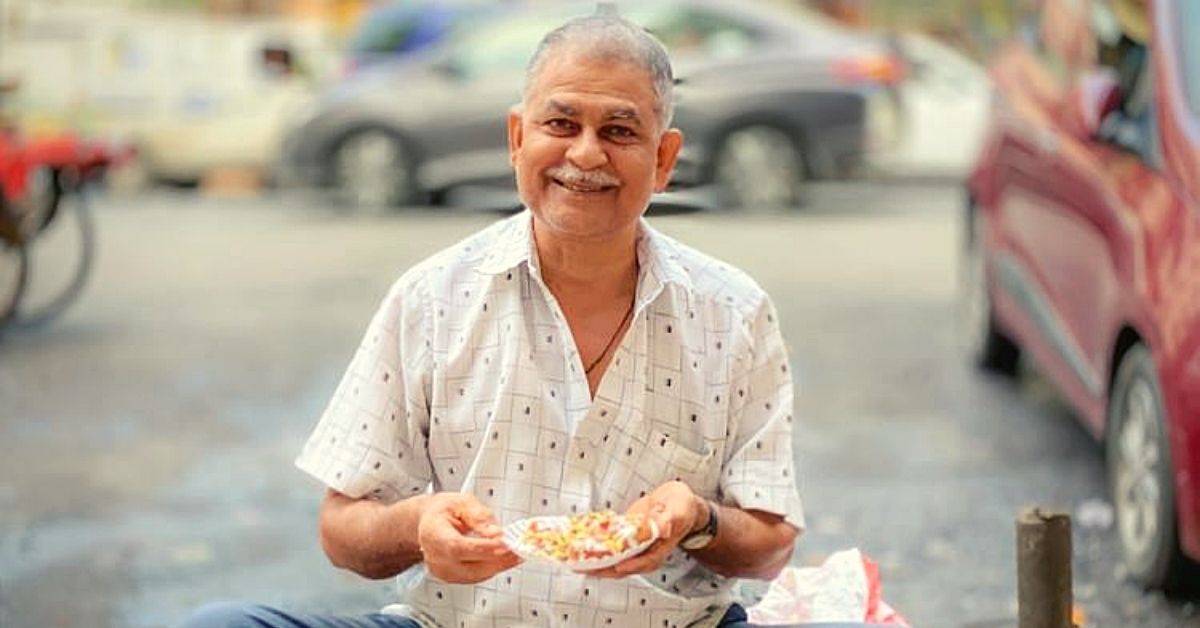
Having teamed up with Ketto, a crowdsourcing platform, Girish posted a message on the fundraiser page and within the first day itself was able to raise almost Rs 40,000. By the second day, the campaign had received help from all across the city, as well as from the UK and the US. Over 3 lakhs was raised and sent to his family in Azamgarh, as a token of help.
Incidents like these remind us how a single thought and motivated action of a man, can truly contribute to transform the lives of many. Be it through crowdfunding or social media posts, anyone can initiate the wave of positive change that can impact these small businesses and save the lives that are at stake.
“We have always ensured a high level of hygiene through the years and with the COVID-19 situation, we have increased those measures as well. From gloves to bottled drinking water for the tok jol (tamarind water), we are making sure our customers get the best quality food. But, I also understand the level of anxiety among people due to the current situation, and now we are caught in the middle of it. Small businesses like ours are invisible to the government also, so no help seems to be coming from there. All we can do now, is just pray that we manage to stay alive till the next day,” shares Dilip.
Featured image: priyvrath/Instagram
If you found our stories insightful, informative, or even just enjoyable, we invite you to consider making a voluntary payment to support the work we do at The Better India. Your contribution helps us continue producing quality content that educates, inspires, and drives positive change.
Choose one of the payment options below for your contribution-
By paying for the stories you value, you directly contribute to sustaining our efforts focused on making a difference in the world. Together, let’s ensure that impactful stories continue to be told and shared, enriching lives and communities alike.
Thank you for your support. Here are some frequently asked questions you might find helpful to know why you are contributing?


This story made me
-
97
-
121
-
89
-
167













